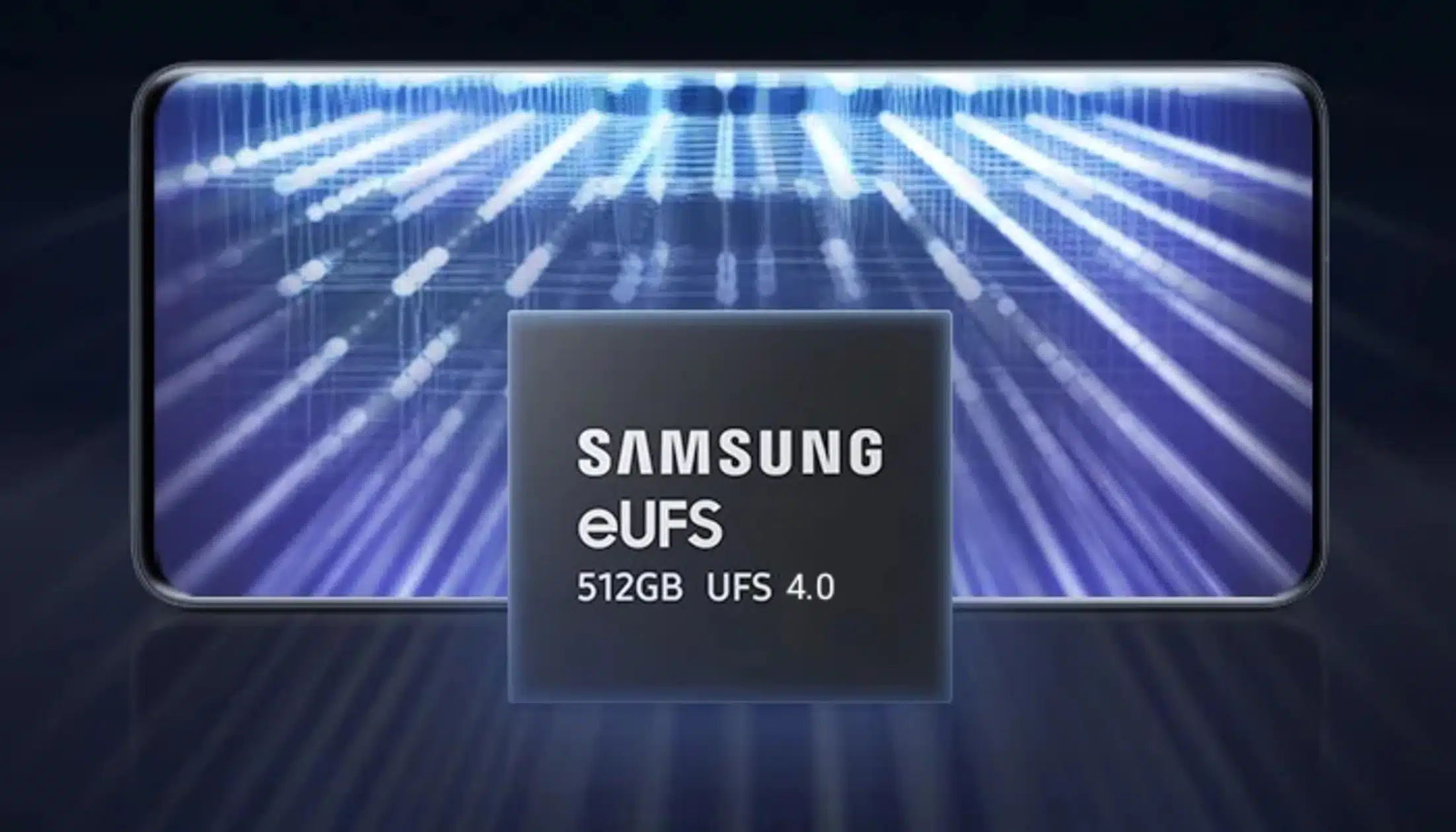For a long time, Android smartphones were playing catch-up with Apple iPhones when it comes to smartphone storage speed. Android flagships always used Samsung-made UFS flash storage and Apple used NVMe storage which is significantly faster than UFS. But With Samsung's new UFS 4.0 storage they finally surpassed Apple's NVMe storage performance. Read our UFS 4.0 VS NVMe comparison.
What is UFS storage?
UFS stands for ‘embedded Universal Flash Storage. Previously Samsung’s high-speed UFS offered much faster data processing and greater energy efficiency than the eMMC (embedded Multimedia Card) storage. But it was slower than NVMe (nonvolatile memory express) storage.

Depending on what type of storage is used on a smartphone, it affects the performance of the device like app opening speed and file export speed. That's why smartphone manufacturers always use the fastest available storage on their flagship phones. IQOO 11 was the first phone to come with UFS 4.0 storage in the market. After that other manufacturers quickly started adopting this new generation of flash storage. That being said, android flagships with the new UFS 4.0 flash storage will have significantly improved performance.
UFS 4.0 specifications

According to Samsung Semiconductor, UFS 4.0 is flash storage built for a smarter, slimmer, more powerful era of mobile phones. With a massive 1TB capacity, it delivers double the speed of the previous generation and 45% better efficiency – removing speed bottlenecks for faster smartphones, smoother VR, and more responsive driving experiences”. These upgrades are important because they allow smartphones to reach new levels of performance like support for 8K multimedia content.
UFS 4.0 vs UFS 3.1 vs UFS 3.0 comparison
UFS 3.1 was one of the fastest flash storage used in flagship smartphones till 2023. After that, all flagship devices as well as upper mid-range smartphones started using the latest UFS 4.0 storage. Let's see a quick comparison of UFS3.0 vs UFS 3.1 vs UFS 4.0
| Storage Type | Sequential Read Speed | Sequential Write Speed |
|---|---|---|
| UFS 4.0 | 4200 MBps | 2800 MBps |
| UFS 3.1 | 2100 MBps | 1200 MBps |
| UFS 3.0 | 2100 MBps | 410 MBps |
UFS 4.0 reaches up to 23.2Gbps data transfer per channel. It has a read speed of 4200MBps and a write speed of 2800MBps. UFS 4.0 uses 7th-generation V-NAND technology. UFS 4.0 had a 1.6x speed increase compared to UFS 3.1 which has a read speed of 2100MBps and a write speed 1200MBps. The majority of the flagship phones in 2023 will use UFS 4.0 flash storage.
List of smartphones with UFS 4.0 Storage in 2024
Here's the updated list of smartphones using UFS 4.0 storage :
Samsung Phones with UFS 4.0 storage
- Samsung Galaxy S24 series
- Samsung Galaxy S23 series (256GB and above)
- Galaxy Z Fold 5 and Galaxy Z Flip 5
iQOO Smartphones with UFS 4.0 storage
- iQOO Neo 9 series
- iQOO 12 5G
- iQOO 11 5G
OPPO and Oneplus Smartphones with UFS 4.0 storage
- OnePlus 12
- OnePlus 11 (256GB and above)
- OnePlus Open
- OnePlus Ace 3
- Oneplus Ace 2 Pro
- OPPO Find X7 and X7 Ultra
- Realme GT5 Pro
Vivo Smartphones with UFS 4.0 storage
- Vivo X100 series
- Vivo X90 series
Xiaomi Smartphones with UFS 4.0 storage
- Xiaomi 14 series
- Xiaomi 13 series (256GB and above)
- Xiaomi 13T
- Poco X6 Pro
- Redmi K70 series
- Redmi K60 Ultra
Gaming Smartphones with UFS 4.0 storage
- Nubia Z60 Ultra
- Nubia Z50 and Z50S Pro
- RED Magic 9 Pro
- ASUS ROG Phone 7 series
- ROG Phone 8 Pro
- Motorola Edge 40 Pro
Other Smartphones with UFS 4.0 storage
- ASUS Zenfone 10 (256GB and above)
- Honor Magic 5 Pro
- Xperia 1 V and 5 V
- Meizu 20 series
- Meizu 21
The Final Verdict on UFS 4.0 storage
- UFS 4.0 is the latest and fastest flash storage available for smartphones.
- It offers double the speed of UFS 3.1 and 45% better efficiency.
- This translates to faster app loading, smoother VR experiences, and more responsive driving experiences.
- UFS 4.0 supports 8K multimedia content, a significant upgrade from previous versions.
- Most flagship and upper mid-range smartphones in 2023 and beyond will use UFS 4.0.
